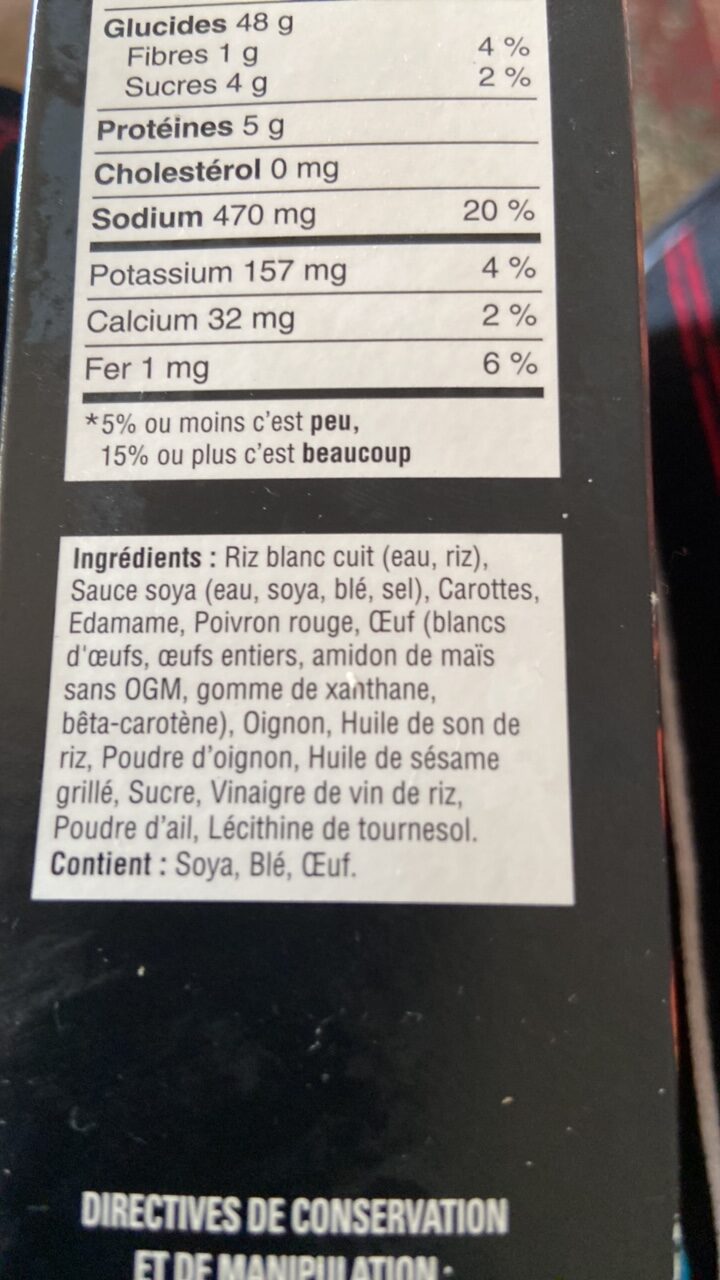
Barcode: 881621002730
Riz blanc cuit
HALAL
📝 Reason: All ingredients in ‘Riz blanc cuit’ have been verified as Halal based on plant origin or non-animal, non-alcoholic source. No Haram or Doubtful additives found in the provided ingredient list. No meat or animal derivatives requiring slaughter present, and no E-codes flagged as Haram or Doubtful are listed. According to Quran 5:3 and sources such as IFANCA and www.soundvision.com, all ingredients are compliant with Halal dietary laws.
📄 Certificates: Vegetarisch
Ingredients:
Details
Understanding Halal Status of Riz Blanc Cuit
Riz blanc cuit, a popular Asian-inspired dish, garners attention for its savory flavors and wholesome ingredients. But for many, a crucial question remains: Is Riz blanc cuit Halal? This post aims to explore its Halal status, providing insights into the ingredients and why they comply with Halal dietary laws.
Halal Certification Overview
According to Islamic dietary guidelines, food must not contain ingredients classified as Haram, or forbidden, which often include animal products not slaughtered according to Islamic law, as well as alcohol. Our investigation reveals that Riz blanc cuit holds a confirmed Halal status.
Ingredient Breakdown
Let’s delve into the primary components of Riz blanc cuit:
- Riz blanc cuit: This is simply cooked white rice, which is fundamentally Halal when cooked in water.
- Eau: Plain water is universally recognized as Halal.
- Riz: The rice grain used is plant-based and Halal.
- Sauce soya: Typically Halal, provided it’s not fermented with alcohol, which is not the case here.
- Soya: Soybeans are inherently Halal.
- Blé: Wheat is a plant-based ingredient and commonly regarded as Halal.
- Sel: Salt is a mineral and always Halal.
- Carottes: Carrots are vegetable-based and Halal.
- Edamame: Immature soybeans are also Halal.
- Poivron rouge: This red bell pepper ingredient is plant-based and Halal.
- Œuf: Whole eggs are Halal when derived from healthy hens without contamination.
- Blancs d’œufs: Egg whites are sourced from Halal eggs.
- Amidon de maïs: Corn starch is plant-based and Halal.
- Sans ogm: The non-GMO claim is neutral regarding Halal status.
- Gomme de xanthane: Typically plant-derived, it’s Halal unless animal enzymes are used, which is rare.
- Bêta-carotène: Generally derived from plant sources, thus Halal.
- Oignon: Onions are Halal as they are plant-based.
- Huile de son de riz: Rice bran oil is a plant-based fat and Halal.
- Poudre d’oignon: Onion powder is Halal.
- Huile de sésame grillé: Toasted sesame oil is plant-based and Halal.
- Sucre: Sugar is typically plant-based and Halal unless specified otherwise.
- Vinaigre de vin de riz: Generally considered Halal even if made from alcohol, as it turns to acetic acid.
- Poudre d’ail: Garlic powder is plant-based and Halal.
- Lécithine de tournesol: This is a plant-based emulsifier and is Halal.
Conclusion
Upon reviewing all ingredients, it is clear that Riz blanc cuit is Halal. All individual components have been verified as compliant with Halal dietary laws. Notably, no additives or components are derived from animals, making it a suitable option for Muslim consumers. Certified as Vegetarian and with no questionable ingredients, it upholds a trusted status in Halal food.
Final Thoughts
When considering your next meal, Riz blanc cuit emerges not only as a delicious choice but as a Halal-certified option that meets dietary restrictions while delivering extraordinary flavors. Enjoy your meal with peace of mind, knowing that you are adhering to your dietary principles!
